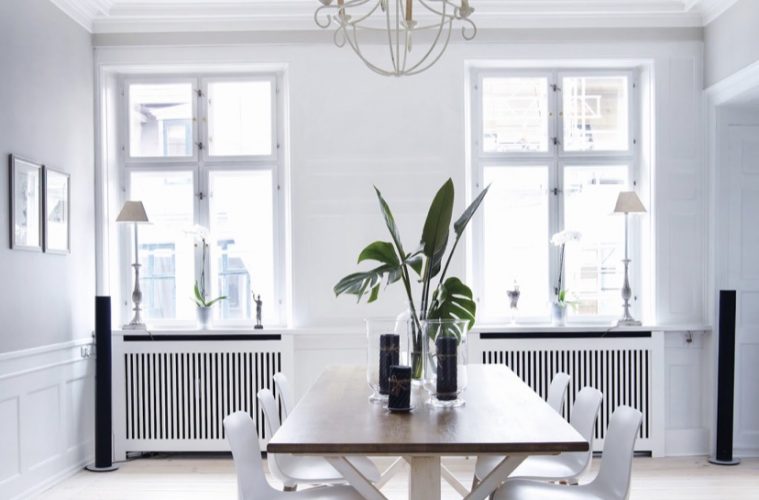Ready to level-up the good energy in your home?
If the words ‘feng shui’ (pronounced ‘fung sh-way’) take you straight back to the ’90s, you’re not alone. This ancient concept of living in harmony with your environment became popular in the West towards the end of last century, when the world was pretty darn thirsty for Eastern-inspired pseudo-spirituality.
But unlike tae-bo, or Zen And The Art Of Motor-cycle Maintenance, feng shui is not a fad. It’s been practised in China for more than 3 500 years. In ancient times, feng shui was used to find the most auspicious placement for sites of spiritual significance, such as temples and tombs. Today, we mostly employ it to design living spaces in which our overwrought 2021 selves can relax, restore our energy and improve our well-being. In fact, many architects and interior designers will often end up incorporating principles of feng shui into their work without even realising it.
3.5 Millennia Of Philosophy In Two Minutes
‘Feng shui is all about energy and the art of spatial alignment,’ says US interior designer Julie Khuu, who has been a devotee of feng shui since childhood. ‘It illustrates how everything within your domain has its own intrinsic energy that can be auspicious, benevolent and beneficial, or harmful to your spirit and well-being.’
By paying careful attention to the spatial arrangement and orientation of items in your home, Julie says you can encourage a positive flow of energy, called qi (‘chi’). And the more good qi you have circulating in your home, the better. ‘It’ll raise your frequency, balance you out and have an overall favourable effect on your well-being,’ says Julie. ‘I feel absolutely unstoppable when the feng shui is good in my home and the qi moves around. I feel it from my head to my toes.’
What feng shui is not, is a style. Forget Zen sand-pits or Japandi decor. You also don’t need to be a minimalist to achieve good feng shui (although clutter is generally considered a no-no). It’s about working within your unique space to maximise its positive effects on your life.
‘At the end of the day, feng shui – much like interior design – should be fun,’ explains Julie. ‘Customise the recommendations to suit your lifestyle and needs. Don’t take every rule super seriously, and always leave room for creativity.’
How To Feng Shui Your Home
While we wish we could say ‘Turn your couch 23° north to invite more money ’, unfortunately feng shui does not operate on a one-size-fits-all system.
Classical approaches to feng shui, such as the Form School and Compass School, will take into account everything from the landscape surrounding your property, to the position of the stars overhead. Even in more watered-down, Westernised versions of feng shui, you’d ideally want a practitioner to help you create a ba gua, or energy map, of your home.
The Power of five
1. Water: Purification, movement and abundance
2. Fire: Passion, fame and action
3. Earth: Security and stability
4. Metal: Love, wealth and health
5. Wood: Creativity, life and growth
Do it yourself!
There are a handful of tenets you could get going with today on your own:
Basic feng shui
Remove clutter. According to Julie, that sense of something being ‘off’ when your
home is cluttered has to do with your qi being trapped, and stagnating.
Plantify your home! Plants bring the wood energy of growth and healing into your space. Almost any species will do, but avoid spiky cacti and, whatever you do, don’t neglect your plants or you’ll reverse that good energy faster than you can say ‘Whoops I killed another one’. More of a fake-plant person? Be sure to dust them regularly to avoid negative qi.
Feng shui in your bedroom
Start by placing your bed in what’s known as the ‘command position’, meaning that if
you were lying in bed and someone entered the room, you would be able to see them immediately. This usually means your headboard would be against one of the two walls diagonally opposite the door. However, you also want to avoid placing your sleeping body in a direct line with the doorway, which carries significant death energy.
Qi loves symmetry. If you have the space, try to balance your bed with a nightstand on either side. These don’t have to match exactly, but it’s important that they’re of a similar visual weight.
Bad reflections ‘Mirrors have too much active yang energy for a place of rest,’ says Julie. If you absolutely need a mirror in your bedroom, make sure it doesn’t reflect any portion of the bed, which some practitioners believe invites strangers into your relationship.
Feng shui in your living room
Do not place a mirror directly opposite the door. Qi entering the room will bounce right back out again.
Throw open your windows so stale qi can exit and fresh energy can circulate.
Include something from each of the five elements into your space. This doesn’t need to be strictly literal. For example, your earth element could be a ceramic vase, fire might be orange fabric, and water could be interpreted as a wavy shape. Download a ba gua that divides your space into energy quadrants based on the elements, and place each item within its designated corner.
ALSO SEE THE BENEFITS OF INDOOR PLANTS


